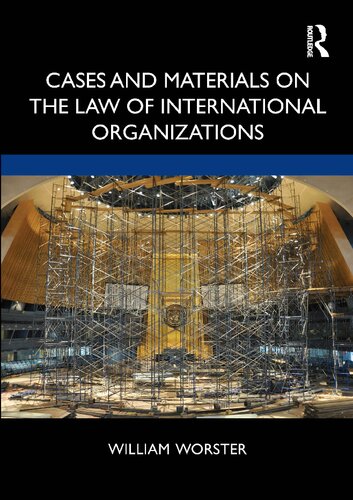

Most ebook files are in PDF format, so you can easily read them using various software such as Foxit Reader or directly on the Google Chrome browser.
Some ebook files are released by publishers in other formats such as .awz, .mobi, .epub, .fb2, etc. You may need to install specific software to read these formats on mobile/PC, such as Calibre.
Please read the tutorial at this link. https://ebooknice.com/page/post?id=faq
We offer FREE conversion to the popular formats you request; however, this may take some time. Therefore, right after payment, please email us, and we will try to provide the service as quickly as possible.
For some exceptional file formats or broken links (if any), please refrain from opening any disputes. Instead, email us first, and we will try to assist within a maximum of 6 hours.
EbookNice Team

Status:
Available4.8
13 reviewsIn less than 100 years, international organizations have evolved from curiosities into keystones of international law. What began long ago as an unremarkable effort to coordinate a limited number of technical issues has grown into a global, multilevel, blended governing project with diverse competences in most fields of human endeavor and interests.
Law graduates who enter the field of international law, as well as political science, international relations, and diplomacy, are increasingly expected to have a strong knowledge of the law of international organizations. Beyond knowledge, graduates are also expected to be able to solve new emerging legal problems confronting organizations.
This book introduces students to the law of international organizations through the careful study of the most recent cases and other materials from the International Court of Justice, United Nations Security Council and General Assembly, World Trade Organization, international criminal tribunals, European Union, European Court of Human Rights, International Labour Organization, various domestic courts and arbitral panels, and other bodies. In doing so, it undertakes a critical examination of legal rights and duties, exposing the fundamental questions that arise when addressing a range of issues within an organization. In order to provide the best foundation, the textbook focuses on several key topics: the law of treaties, creation of organizations, membership, powers of organizations, legal effects of their acts, organs, immunities, and responsibility.
This book is best suited for students who are studying international organizations and who have already had one or more courses on international and/or European law.